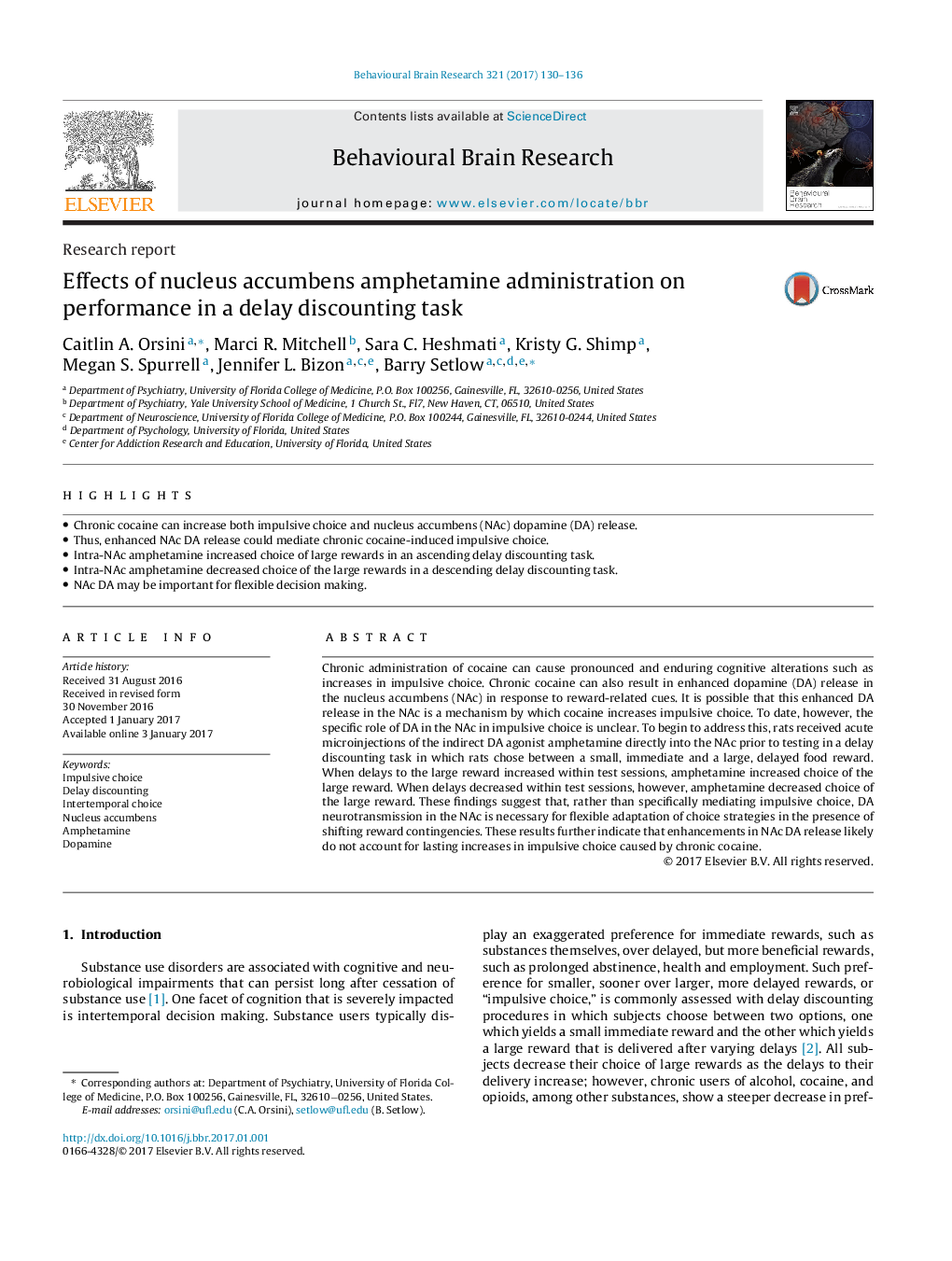| Article ID | Journal | Published Year | Pages | File Type |
|---|---|---|---|---|
| 5735600 | Behavioural Brain Research | 2017 | 7 Pages |
â¢Chronic cocaine can increase both impulsive choice and nucleus accumbens (NAc) dopamine (DA) release.â¢Thus, enhanced NAc DA release could mediate chronic cocaine-induced impulsive choice.â¢Intra-NAc amphetamine increased choice of large rewards in an ascending delay discounting task.â¢Intra-NAc amphetamine decreased choice of the large rewards in a descending delay discounting task.â¢NAc DA may be important for flexible decision making.
Chronic administration of cocaine can cause pronounced and enduring cognitive alterations such as increases in impulsive choice. Chronic cocaine can also result in enhanced dopamine (DA) release in the nucleus accumbens (NAc) in response to reward-related cues. It is possible that this enhanced DA release in the NAc is a mechanism by which cocaine increases impulsive choice. To date, however, the specific role of DA in the NAc in impulsive choice is unclear. To begin to address this, rats received acute microinjections of the indirect DA agonist amphetamine directly into the NAc prior to testing in a delay discounting task in which rats chose between a small, immediate and a large, delayed food reward. When delays to the large reward increased within test sessions, amphetamine increased choice of the large reward. When delays decreased within test sessions, however, amphetamine decreased choice of the large reward. These findings suggest that, rather than specifically mediating impulsive choice, DA neurotransmission in the NAc is necessary for flexible adaptation of choice strategies in the presence of shifting reward contingencies. These results further indicate that enhancements in NAc DA release likely do not account for lasting increases in impulsive choice caused by chronic cocaine.
